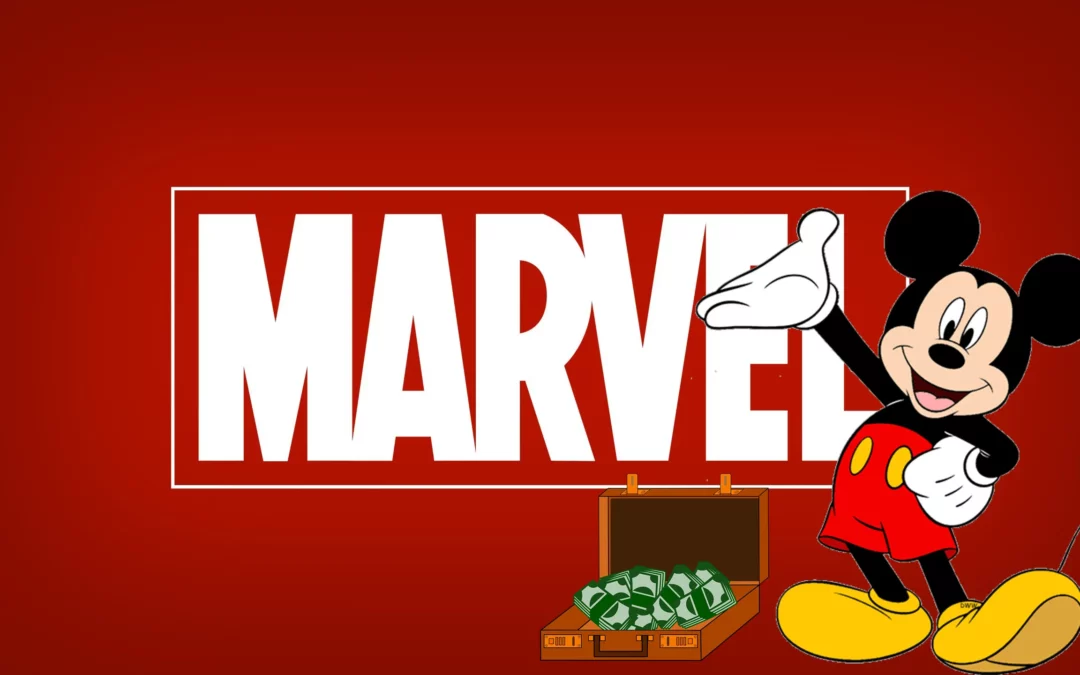Disney CEO Bob Iger announced Thursday, just as the SAG-AFTRA strike began, that the firm will reduce the development of Marvel and Star Wars content due to declining box office results.
In an interview with CNBC’s David Faber, Iger noted that the decision is intended to address a “diluted focus and attention” among fans and decision makers for the two franchises, but it is also, and maybe more importantly, intended to minimize expenses. “You take a step back not only to focus, but also as part of our cost-cutting initiative.” “We’re spending less on what we make and producing less,” the 72-year-old explained.
The move comes at a time when Marvel properties aren’t doing as well at the box office as they did during the Infinity Saga, an 11-year period from 2008 to 2019 in which the studio released 23 titles, culminating in the $2.799 billion success known as Avengers: Endgame, followed by Spider-Man: Far From Home.
Marvel released Ant-Man and the Wasp: Quantumania in 2023, earning $214 million domestically and $476 million globally. That’s a good figure when compared to Ant-Man and the Wasp’s domestic gross of $216 million and global gross of $406 million in 2018. The hopeful indications stop there. Guardians of the Galaxy Vol. 3, Black Panther: Wakanda Forever, and Thor: Love and Thunder all failed to equal their predecessors’ box office success.

Marvel’s present issue is a combination of oversaturation and superhero fatigue. Disney flooded the market to meet the expected demand for Marvel material. In 2021, Disney released four MCU films (Black Widow, Shang-Chi and the Legend of the Ten Rings, Eternals, and Spider-Man: No Way Home) and five Disney+ shows (WandaVision, The Falcon and the Winter Soldier, Loki, What If…?, and Hawkeye).
“In our zeal to basically grow our content significantly and serve our streaming offerings, we ended up taxing our people, in terms of their time and focus, way beyond where they had been,” Iger told CNBC. “Marvel is an excellent example of this.” It had not been in the television business at all, and they not only increased their movie output, but they also produced a lot of TV programs. To be honest, it blurred focus and attention.”
RELATED: Weekend Box Office Prediction: Disney’s The Little Mermaid Eyes a $135-140M+ Memorial Day Opening
Clark Gregg (Agent Phil Coulson) of the Avengers rightfully chastised Iger for having “not been in the television business at any significant level” despite having overseen seven seasons of ABC’s Agents of S.H.I.E.L.D. “Bro…” he simply tweeted.

In addition to churning out too many projects, the ongoing Multiverse Saga has alienated the casual fan, who can no longer jump between titles thanks to the Marvel Cinematic Universe’s connective fiber. To understand what the hell is going on in Doctor Strange in the Multiverse of Madness, for example, you have to watch WandaVision, Spider-Man: No Way Home, and possibly Loki.
This overabundance is entirely the fault of Iger and Disney, who actively pushed for more Marvel content in order to make as much money as possible. With the WGA writers strike now in its 74th day and the SAG-AFTRA strike just beginning, the public is getting a greater grasp of how greedy studios, streamers, and their executives can be.
According to a 2022 Variety article, Iger gratefully accepted a wage cut, reducing his yearly earnings from $45.9 million to a paltry $1 million basic salary. Oh, and there’s a long-term incentive award in his deal that allows him to earn up to $25 million per year.
RELATED: This Summer, A Stan Lee Documentary Will Air On Disney+

According to Deadline, David Zaslav, the CEO of Warner Bros. Discovery who reduced the company’s $50 billion debt by burying the $90 million completed Batgirl film and callously trashing projects from the Max streaming service for tax write-offs, earned roughly $39.3 million last year. Zaslav earned about $250 million in 2021, thanks mostly to his grant option.
SAG-AFTRA president Fran Drescher attacked the premise that studios are losing money in a heated, smart address on Thursday, as CEOs like Iger and Zaslav are paid excessive salaries.
Meanwhile, the Alliance of Motion Picture and Television Producers and studios are willing to wait months until desperation sets in before returning to the negotiation table with writers, according to Deadline.
“The endgame is to allow things to drag on until union members start losing their apartments and houses,” a studio executive explained.
Download The Radiant App To Start Watching!
Web: Watch Now
LGTV™: Download
ROKU™: Download
XBox™: Download
Samsung TV™: Download
Amazon Fire TV™: Download
Android TV™: Download

